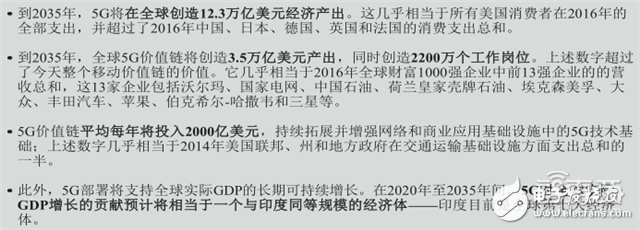This year's MWC will become a key node for 5G commercial acceleration. Operators such as Vodafone, Deutsche Telekom, NTT docomo, Softbank, KT and Verizon will display 5G prototypes jointly with equipment manufacturers such as Huawei, Ericsson and Nokia at MWC 2017. Test the situation.
The fifth-generation mobile communication technology is considered to be the foundation of the Internet of Everything, and plays an important role in applications such as Internet+, cloud computing, and artificial intelligence. A key advantage of 5G is that it will support mobile networks for more efficient operations and reduce data transmission costs. This is critical for mobile network operators to respond to new media and data-intensive use cases like AR/VR. With enhanced performance and a seamless user experience, enhanced mobile broadband use cases will support new application areas and needs in addition to supporting existing mobile broadband applications.
In addition to the enhanced mobile broadband use case, the proposed 5G specification will also include features that significantly extend the capabilities of current mobile technologies. This will support 5G's range of use cases including mission-critical services and massive IoT, requiring ultra-reliable and low-latency communications, as well as low cost and long battery life.

The following are the dry goods presented by the smart internal reference:
The 5G mobile network is the next major stage of the mobile telecommunications standard following the current deployment of 4G LTE. The IHS study focuses on the long-term economic impact of 5G, but it is also important to note that the 5G economy has begun to emerge. The 5G early commercial deployment, which is currently planned, has the potential to make a meaningful contribution to the economy by 2020.
The economic impact of new inputs, new R&D and new technology innovations suggests that 5G will have a profound and lasting impact on global growth. IHS Markit is convinced that 5G will be widely used in the global economy in the next two decades and will become one of the important contributors to the expansion of the global economy.

*IHS key research results
Status: next year's calibration ecological deployment has begun3GPP is working hard to develop Release 15, which will be completed in 2018 and is expected to be the first specification for the new 5G wireless air interface (5G NR) and next-generation network architecture (5G NextGen).
5G development work will continue to 3GPP Release 16 and beyond, but Release 15 will provide global specifications for 5G commercials beginning in 2019. At the same time, the ongoing work of the 3GPP will be submitted to the ITU before the official release of the IMT-2020 specification, and the IMT-2020 specification will be completed in 2020. It is worth noting that while these specifications are being phased in, pre-standard 5G commercial deployments will start earlier.
From chipset and terminal vendors to network infrastructure vendors, the entire ecosystem has undergone significant pre-commercial work. Some operators have announced their timetable for 5G field testing. US operator Verizon said it will start in 2017, while South Korean operators SK Telecom and Korea Telecom are targeting 2018.

*5G standardization schedule (standard development and deployment)
Continuous investment and research and development to drive innovation and develop a new generation of technology is a necessary condition for realizing the full economic potential of the 5G economy. Accelerating the 5G economic process requires policy-makers to support long-term investment and R&D, and to achieve cooperation in the public and private sectors in the development of 5G standards to ensure that regulation and approval keep pace with innovation.
The challenge for policymakers in the 5G economy is that they must be prepared to face the spread of 5G technology in their daily lives and avoid creating systems that hinder continuous innovation.
As new business models emerge, the old ways of providing goods and services are drastically changed or abandoned altogether, and the 5G economy will bring greater complexity to policy development and regulation. Preparing for a 5G world will require modernization of policies and regulations in multiple areas, including public safety, cybersecurity, privacy, spectrum allocation, public infrastructure, health care, spectrum empowerment and approval, and education, training, and development.
Portable Battery Digital Signage
Portable Battery Digital Signage,Portable Sign Board,Sign Board,Portable Digital Signage
Shenzhen Risingstar Outdoor High Light LCD Co., Ltd , https://www.risingstarlcd.com